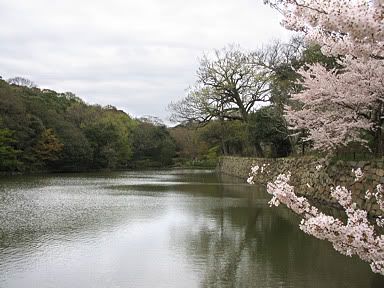The Akashi Lady – Chapter 12 & Chapter 13

Picture source: http://www.taleofgenji.org/akashi.html
The Novice’s daughter – She is the love interest who will give birth to the future Empress.
The
“His daughter had no remarkable looks, but she was attractively elegant and had wit enough to rival any great lady. Knowing full well that her station left much to be desired, she took it for granted that no great lord would deign to notice her…” (269).
The
Furthermore, we learn that she is an accomplished koto player, that skill alone makes her more attractive (women playing the koto are considered more refined), and she earns her way into Genji’s heart with her music. Like poetry, music is a highly valued form of expression but moreover, it is purely emotional because it forges a direct connection to the audience. With poetry, there is a process of encoding by the writer, and decoding by the receiver. As a result, messages may get misunderstood, such as with the Cicada Shell Lady and Genji’s poem about her “smelly” robe. For the
Throughout the text up until that point, Genji rarely truly concerns himself with what his ladies may think of his affairs with other ladies. This is not the case at Suma. During his exile at Suma, he puts off meeting with the
“Genji suffered and smarted that his lady at Nijo might somehow catch wind of all this and be hurt to imagine his heart straying, even in a flight of folly; which no doubt gave the measure of his extravagant love” (270).
Genji calls his affairs a “silly amusement” (270), and that is exactly what the
Another interesting section comes at the end of the Suma chapter, which connects the
“He woke up and understood that the Dragon King of the sea, a great lover of beauty, must have his eye on him” (253).
Significance to Genji: Could this “daughter” be a reference to the
It seems that the text suggests that there are other forces at work here, as the Novice is able to travel back and forth with ease, despite the difficult waves. Also to consider, is that the Akashi Novice may be more attuned to the land through his studies and practices of Buddhism, which stresses harmony with nature. He is described as being very devoted to his practises, with the only real worry being that of his un-wedded daughter. He even tells his daughter that should he die before she weds – she should drown herself in the sea. But why would he give this order? Perhaps the drowning in the sea is not only death, but also a spiritual return to the Dragon King. According to the ancient Japanese myth, the Dragon King does have a daughter named “Otohime”, but more significantly, the human she marries is a prince (Prince Hoori). Although the
Sources:
http://www.dragonorama.com/famous/r/ryujin.html (myth)

2 Comments:
At 4:21 PM, Dr. Stephen Ogden said…
Dr. Stephen Ogden said…
What a gorgeous picture!
At 10:58 AM, Crystal Lee said…
Crystal Lee said…
Did you see the link to the other pictures? Not a bad place to spend an exile, me thinks
Post a Comment
<< Home